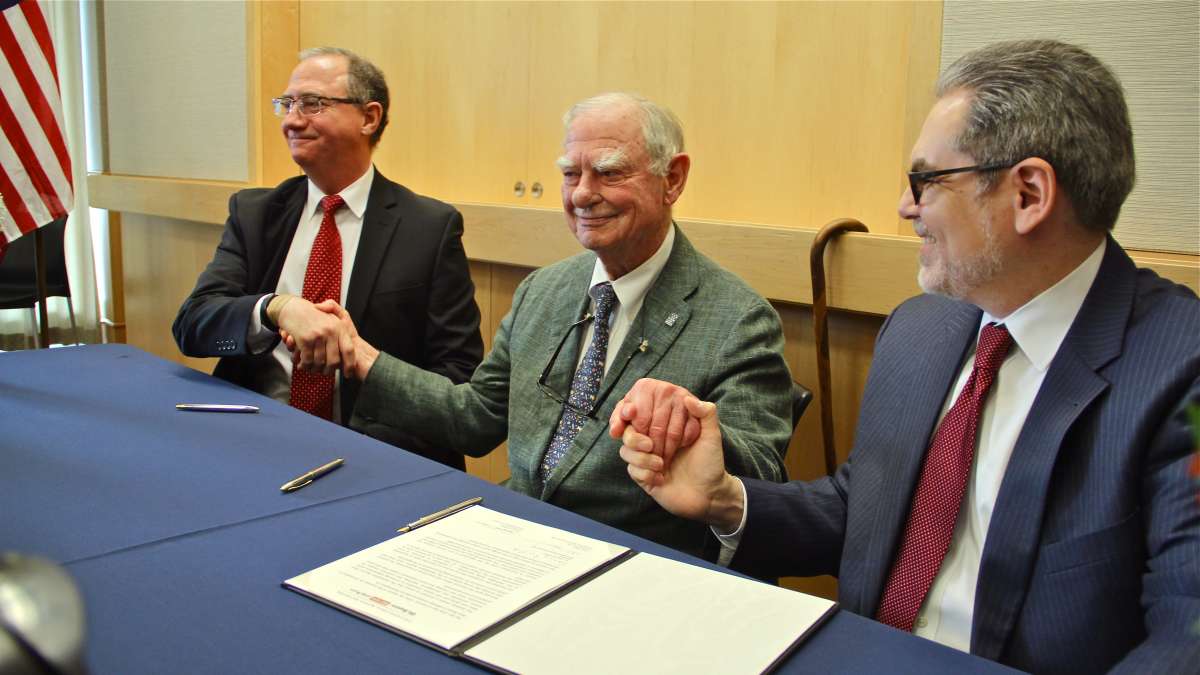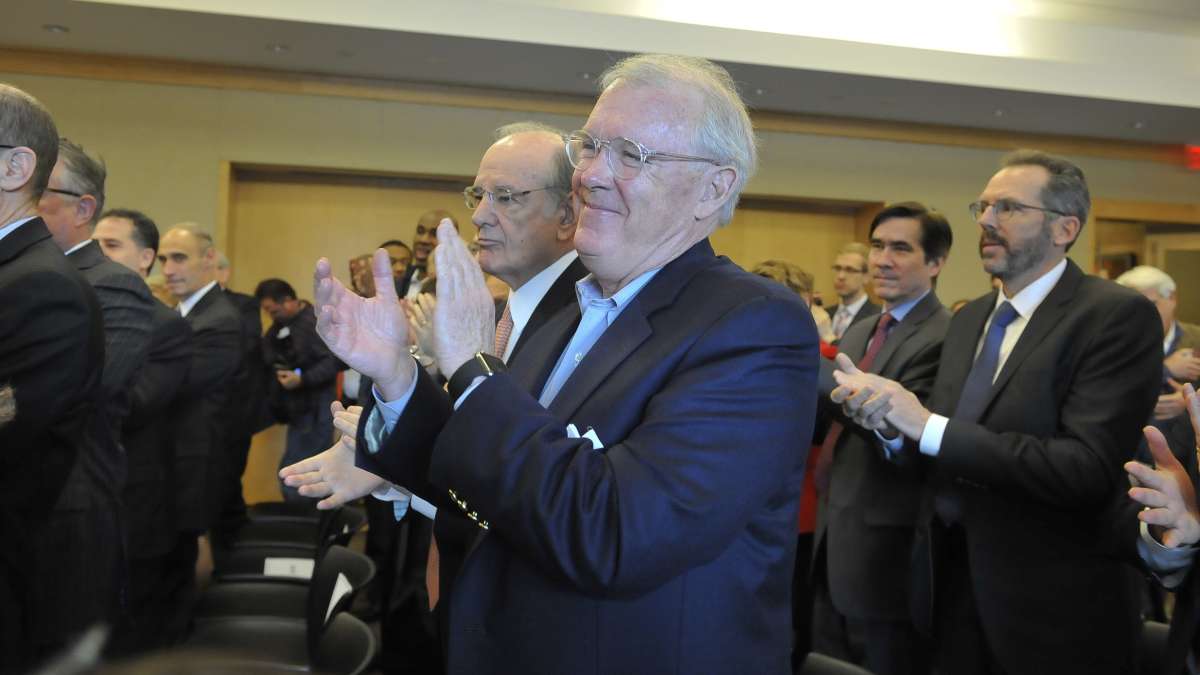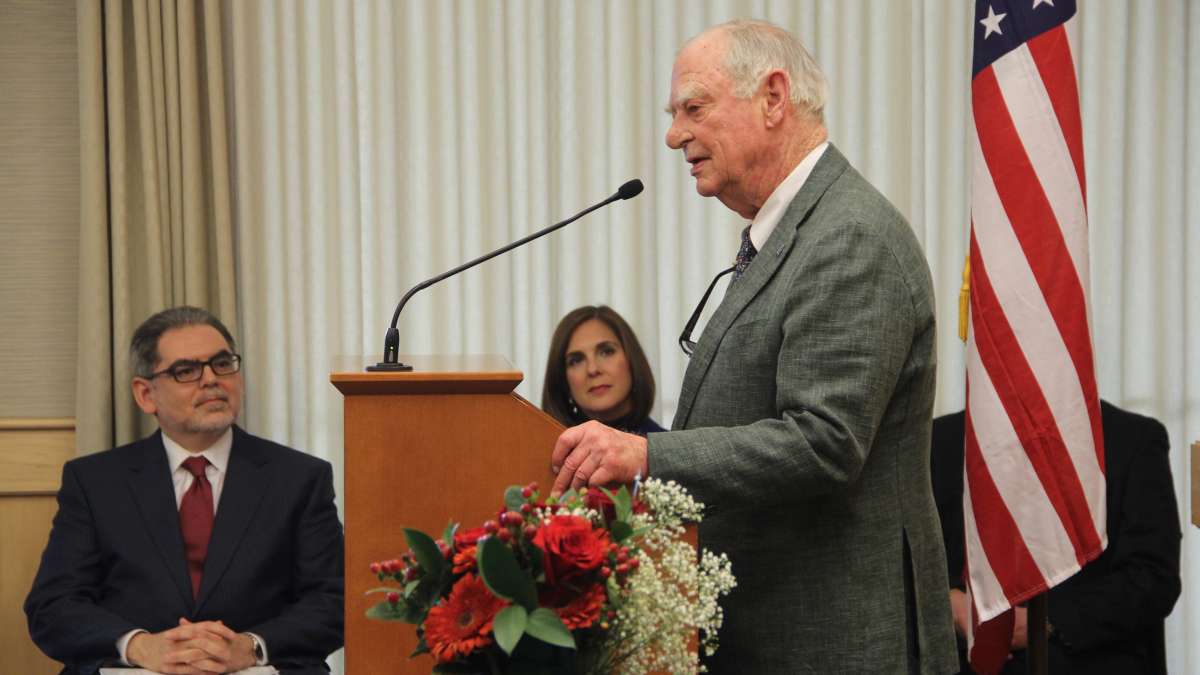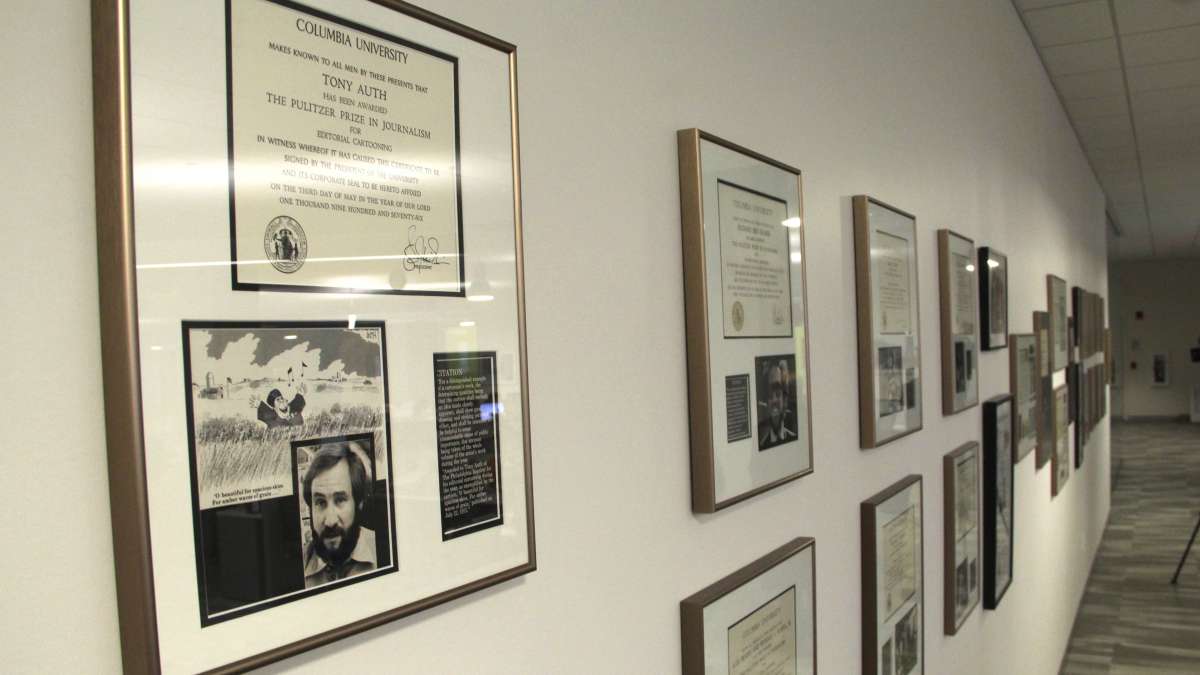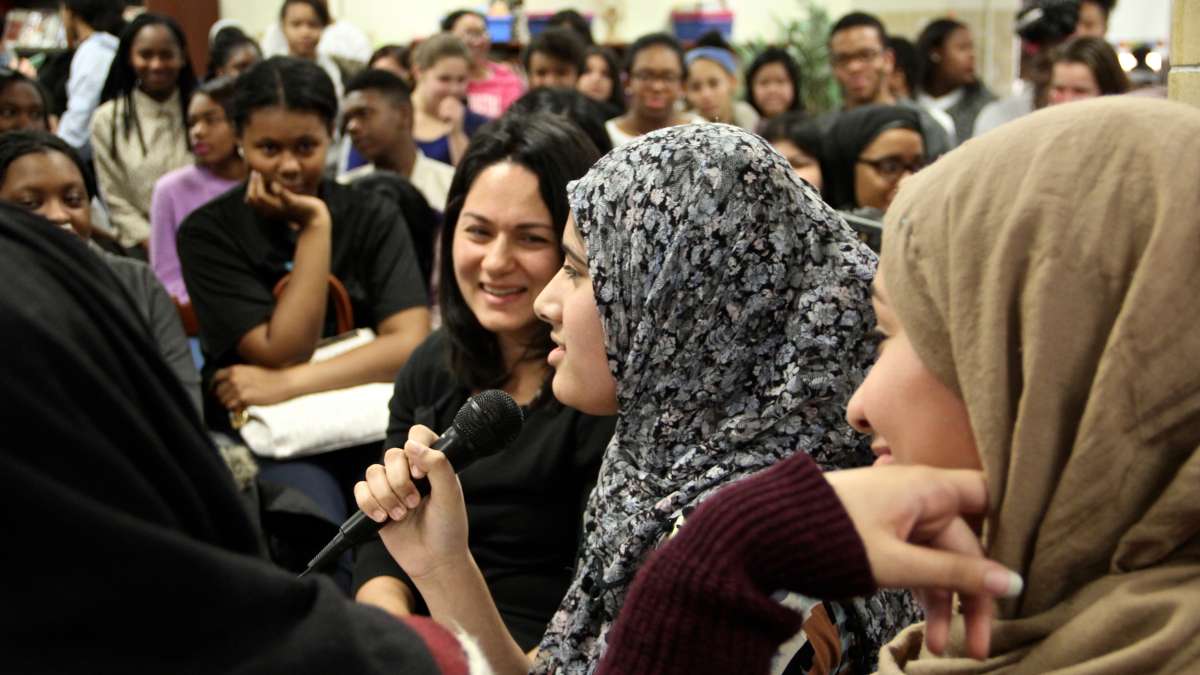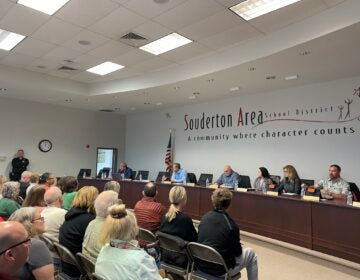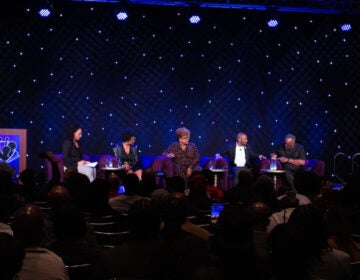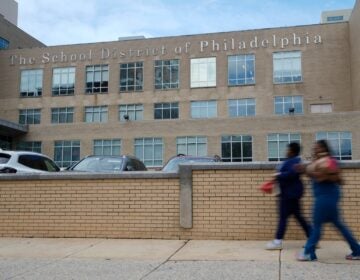Muslims at South Philly school gather to commiserate, educate and share stories
ListenIn the wake of violent attacks both in the U.S. and abroad linked to Islamic extremists, many peaceful Muslims here feel increasingly marginalized.
They say the sometimes inflammatory rhetoric in the media and on the presidential campaign trail unfairly stereotypes their faith and ignores their individual humanity.
Muslim students at a Philadelphia public high school came together this week to counteract what they see as a narrow-minded narrative.
Eleventh grader Ijanae Alexander can remember vividly the first time she truly felt victimized for her faith.
“I was crossing Spring Garden and this man was on a skateboard. And he told me: ‘Go home, you terrorist.’ But the question that was on my mind was, ‘Is home the hospital that I was born in? Is home the house that I live in? Where is home?'” she asked. “This is my home. I was born in Philadelphia. I was born in the states, so where else is home?”
Alexander was one of about a dozen Muslim students who gathered to share stories this week at an after-school forum held at the Academy at Palumbo high school in South Philadelphia.
Before a library packed with peers of all backgrounds, the students emphasized the peaceful nature of the Islamic faith and decried those who prejudged them for their religion.
Being harassed on the street unprovoked was a common tale.
“On the other side of the street, someone started shouting at me, saying, ‘You, the one, with the blue book bag, you f—ing terrorist.’ And it took me a long time to process what happened. And as I continued walking, I got into the train, because I was going home, and I started crying,” said Fahima Shobarna, a sophomore at Palumbo. “It impacted me so badly, and I started shaking.”
Many students expressed frustration with the violent extremists who they say distort the Quran.
“You don’t say, ‘I’m a Muslim, that’s why I’m shooting somebody,'” said freshman Ahmad Ahmad “If you were truly a Muslim, you wouldn’t be out here shooting somebody, because you know that’s not what we believe in.”
Based on his skin tone, Ahmad says people often mistake him for being Latino.
“Even fellow Muslims, when they hear me speak Arabic, say, ‘Oh, you’re Muslim?’ I’m like, ‘Yeah.’ But they’re like, ‘But you just don’t look like it.’ Which is weird,” he said, “because I never knew a religion had a face.”
Students also took time to promote the faith as one which fosters tight-knit families who generously share love, tradition and food.
Freshman Yassmein Ghayad said she was proud of the peaceful reach of Islam around the world.
“It doesn’t matter what ethnicity you are from, or what country you originate from, you will always be accepted,” she said. “Muslims are very diverse and I love that.”
Donald Trump was on the mind of many of the students who spoke at the forum. As the frontrunner in the Republican presidential primary, he has pledged to bar Muslims from entering the country. He has also seemed open to creating a national registry of all Muslims currently living in America.
Mariama Gackou, a freshman, can’t believe his political success.
“He’s taking away my rights as well as giving leaders of ISIS momentum to recruit people inside of the United States,” she said.
Tasfia Richi says she’s able to brush off the negativity she sees in the media, but feels the toll it takes on others. Recently, she said she and her family watched a television news show that portrayed Muslims “like they were monsters” who would “attack you if you said anything to them.”
“I go back to my room highly disappointed, and my little sister comes up to me and says…’I don’t want to wear the hijab when I grow up.’ And I look at her, and I’m like, ‘Why?’ She says, ‘They will hurt me.’ And I’m like, ‘Who do you mean they? ‘The people on the TV who said they hate Muslims.'”
In contrast, many students spoke highly of the supportive environment at Palumbo, which is a very diverse district-run magnet school.
Staff there helped organize the town hall with the help of students as a way of confronting Islamophobic views.
“We wanted to, in our own community, try and counteract some of that,” said science teacher Kate Sundeen.
Ndeen Albarqawi, an 11th grader with Palestinian roots, said the event was a refuge from a larger world which often leaves her feeling less than human.
“To be generalized against every freaking day of my life is tiring. It’s stupid, and I think at some point, nobody listens to when you say, ‘This is tiring,'” she said. “Nobody cares anymore, because you’re ‘a terrorist.’ So who cares, right? So to have a room full of people who actually listen is not something you get everyday. And that’s cool.”
WHYY is your source for fact-based, in-depth journalism and information. As a nonprofit organization, we rely on financial support from readers like you. Please give today.



